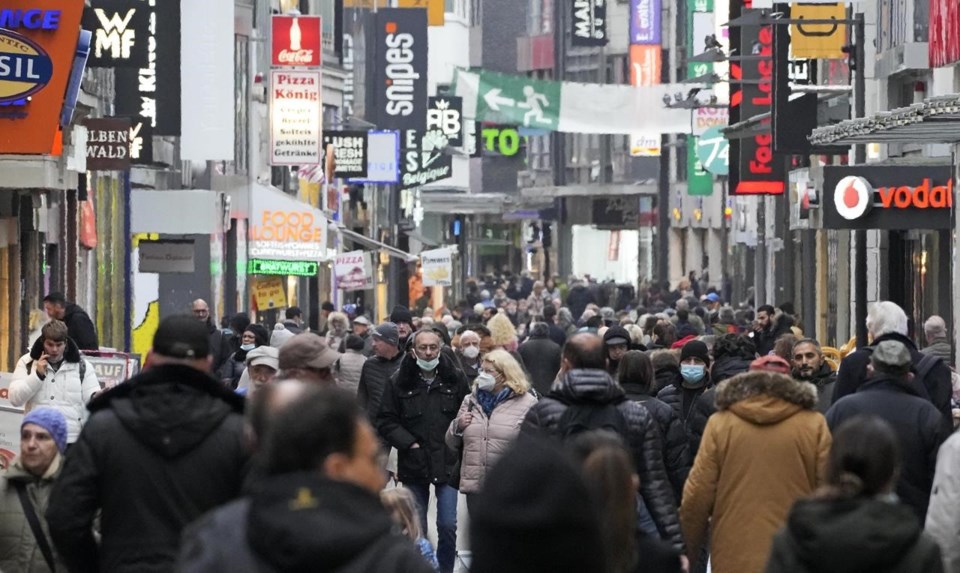BERLIN (AP) — The German government on Wednesday slashed its growth forecast for this year and predicted that as it deals with the fallout from , including Moscow cutting off natural gas supplies.
The Economy Ministry said it expects Germany's gross domestic product to grow by 1.4% this year and then decline by 0.4% next year. In late April, it had forecast 2.2% growth in 2022 that would accelerate to 2.5% next year.
Since then, the impact of the war has deepened, with energy prices stubbornly high and Germany's annual inflation rate hitting 10% in September.
Russia, which was long Germany's main supplier of natural gas, started reducing supplies through the main Nord Stream 1 pipeline in June and at the end of August. Still, Germany's gas storage facilities are nearly 95% full, and officials say the country is well-placed to get through the winter — though efforts to save gas will be necessary.
The main reason for the revision of the economic forecast was the , the Economy Ministry said. Those high prices are driving inflation, weighing on industrial production and expected to reduce household use.
Economy Minister Robert Habeck, who is also Germany's vice chancellor, said that GDP is believed to have shrunk in the third quarter, and is expected to decline again in the current fourth quarter and again in the first quarter of 2023 before beginning to recover. Two consecutive quarters of negative growth is one common definition of recession.
Habeck said that despite the grim growth projections, employment would likely remain “robust.”
Russian imports once accounted for more than half of Germany's gas supplies and still accounted for a bit over a third before Moscow started reducing supplies this summer — citing technical problems that German officials dismissed as cover for a political decision to sow uncertainty and push up prices.
has repeatedly taunted the West by saying Moscow could supply gas through the never-used Nord Stream 2 pipeline, whose certification process shortly before Russia invaded Ukraine. That's a political nonstarter for German officials, who say that Russia has proven itself an unreliable energy supplier in any case.
The German government predicted average inflation of 8% this year and 7% next year — a rate that it said would be significantly higher without a so-called that it plans to introduce to keep energy bills for households and businesses under control.
It predicted that the economy will return to growth in 2024, with GDP expanding by 2.3%.
“These figures are bad, you can't talk past that,” Habeck said. But, he said, “they could have been worse if politicians hadn't acted.”
Habeck said an agreement among European Union members was “within reach” to jointly tackle high gas prices. The proposal entails modifying the way gas is traded through a Netherlands-based platform, he said.
“We must not allow Putin to triumph with his strategy of endangering prosperity and endangering the economy,” Habeck said. “So every effort has to be made to prevent that.”
___
Frank Jordans contributed to this report.
Geir Moulson, The Associated Press




